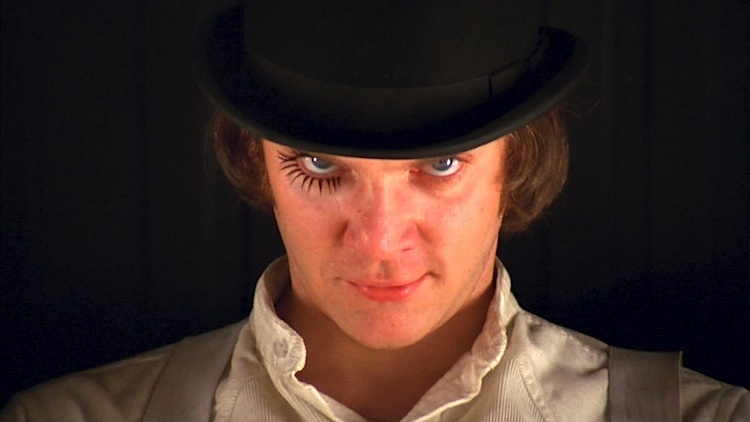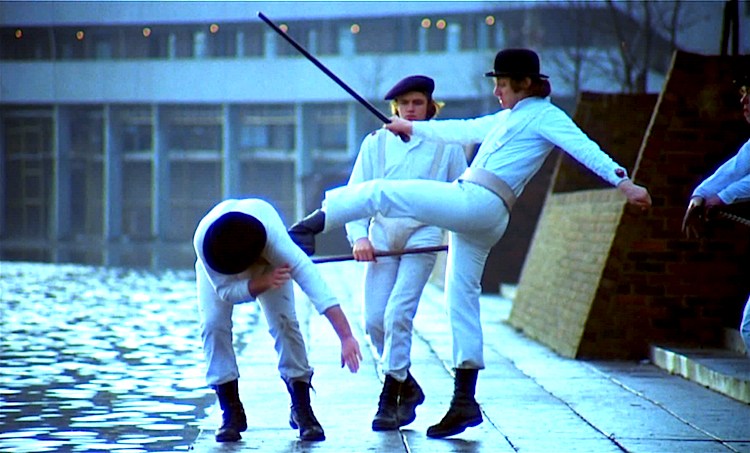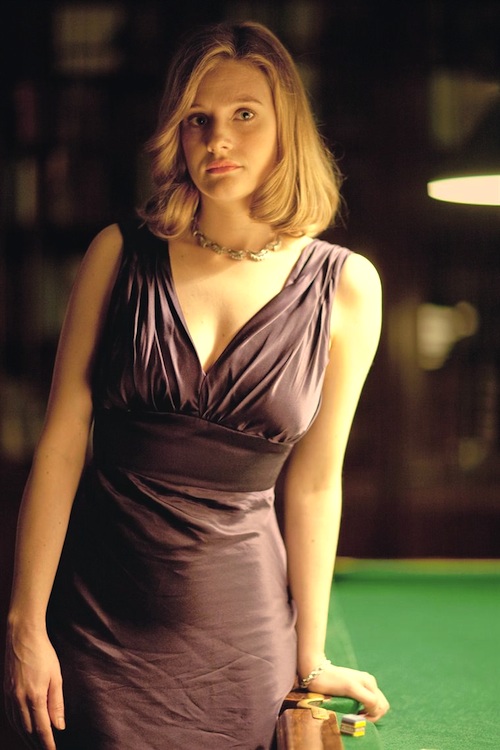
[EDITOR’S NOTE: The New York Post’s Kyle Smith suddenly has a column out today (8/17) entitled “The Clockwork riots,” which compares the London riots to both the Burgess and Kubrick versions of A Clockwork Orange, referring to the “prophetic” nature of those works, as well as to the ongoing crime “orgy” in London. No attribution is made to Libertas. This seems to be a striking coincidence. We would appreciate a clarification from Mr. Smith.]
By David Ross. A Clockwork Orange, Kubrick’s classic interpretation of Anthony Burgess’ 1962 novel, is no longer prophetic. It is actual. The realization of its vision is unmistakable as London mobs of juvenile miscreants burn and loot, differing from Malcolm McDowell’s Alex DeLarge only insofar as they would not be caught dead listening to Beethoven. We are witnessing the nanny state eventuate in its logical terminus: abdication of personal responsibility, dissolution of purpose, collapse of belief, crippling unconscious sense of one’s own infantilization. As Mark Steyn says, “Big government means small citizens.”
This seems to me the movie’s crucial exchange:
Tramp: Well, go on, do me in you bastard cowards! I don’t want to live anyway, not in a stinking world like this!
Alex: Oh? And what’s so stinking about it?
Tramp: It’s a stinking world because there’s no law and order anymore! It’s a stinking world because it lets the young get on to the old, like you done. Oh, it’s no world for an old man any longer. What sort of a world is it at all? Men on the moon, and men spinning around the earth, and there’s not no attention paid to earthly law and order no more.
“No attention paid to Earthly law and order” is a curious and pregnant phrase. The tramp wants to complain not merely about crime, but about alienation from something more fundamental than the penal code. The exasperated allusion to “men on the moon” implicates that rationalism and materialism of a post-religious age. Seduced by our new powers of knowledge and control, we’ve lost sight of basic truths and duties.
Just now I’m reading Elizabeth Gaskell’s 1857 biography of Charlotte Bronte. As the yobs spread their mayhem, I can’t help thinking of the three Bronte sisters, their mother dead, their two elder sisters dead, no schooling to speak of, no money to speak of, nothing but the cold and howling Yorkshire wind for company, and yet toiling to master French, German, politics, history, and literature, and eventually promulgating, from the nursery of a provincial parsonage, one of the great literary sprees in all history. How is it that their kind has become so utterly inconceivable?
Continue reading UPDATED: A Clockwork Orange, The Brontes & The London Riots

